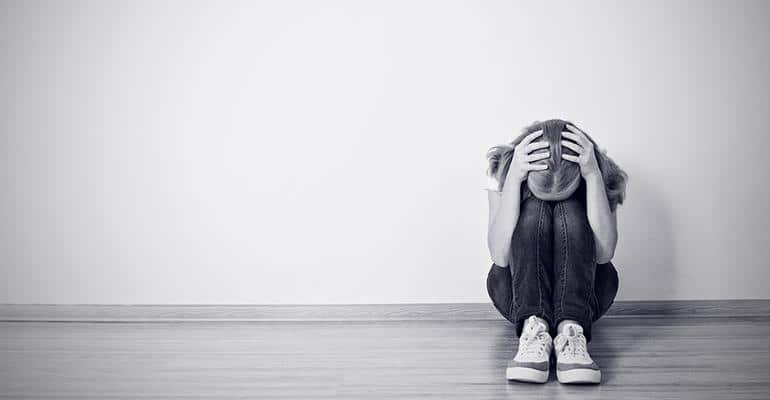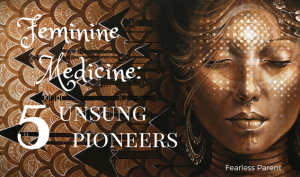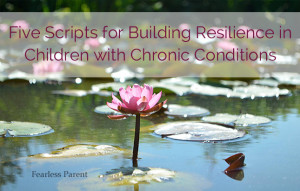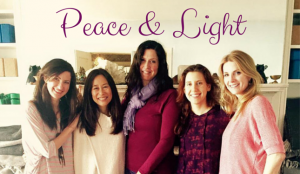A few weeks ago we attended the funeral of a neighbor. Diane* was 52 years old and had battled Stage 4 lung cancer for over five years. She was an active non-smoker with three adorable children, a great husband, and an incredible job in a financial company. Our 15 year-old daughters are friends.
On the day she found out that she was seriously sick, with two months to live, Diane decided to fight the disease, even it meant that she was only buying time to be with her family a little longer.
This is my daughter Theresa’s fourth friend to lose a parent over the past five years; three of them to cancer.
 Three years ago, I received a phone call from my friend who tearfully shared the news. At 46, her husband was dying of lymphoma. Grace called, in part, to ask for help. Her 12 year-old daughter Lena* has sickle cell anemia, a serious blood disorder, which can shut down the organs if not treated properly. Stress and grief in the middle of a New England winter were dangerous for Lena.
Three years ago, I received a phone call from my friend who tearfully shared the news. At 46, her husband was dying of lymphoma. Grace called, in part, to ask for help. Her 12 year-old daughter Lena* has sickle cell anemia, a serious blood disorder, which can shut down the organs if not treated properly. Stress and grief in the middle of a New England winter were dangerous for Lena.
Grace asked if Lena could come to our house after school so I could help monitor her health and emotional well-being. Her eight year old son, Joseph*, would be in the after-school program until Grace could pick him up after work.
Lena began to lash out in anger against her mother and brother. Crying meant pain in her fragile body. I realized that Lena would not allow herself to cry, so she had no way to release the emotional pain as a result.
While at a local bookstore, I picked out a journal that resembled something her father would choose for her. It was blue, large and a bit plain. It was a perfect gift from dad.
I gave it to Lena with the idea that writing her father in the journal would help her through the pain. “He would see it,” I told her. She grabbed the journal and declared it was exactly like one her father would have chosen.
Lena wrote to her father day and night and her demeanor began to soften. Her mother declared the journal writing to have been more helpful than anything the grief counselor provided.The healing journey had begun.
I like to walk through a cemetery a couple of blocks from my house. It’s not a macabre experience for me, but something strangely peaceful. I imagine the lives of the deceased, the families they left behind, and reflect on the whole purpose of life. Diane is buried there.
One day, I was walking through and came up to the headstone for the father of another of Theresa’s friends. He was 43 when he passed of brain cancer five years ago. Leaning against the headstone was a poem his daughter had written in English class entitled: “I remember. . .” It was about her father’s diagnosis and illness.
In the poem, the young girl’s grief and anger were pouring out, toppled over by her overwhelming love for her father. I felt a moment’s pang of intrusion at reading something so personal, but in that moment, I connected deeply with both of them and said a prayer for her continued healing. While there, I also said a prayer for the family of the man buried a few feet away. He died in a motorcycle accident four years ago, leaving behind a son who is yet another friend of Theresa’s to have lost a parent.
My daughter has been a comfort to her friends. She is a quiet listener, compassionate, and entirely genuine in her caring. I wondered, and worried, how the loss of her friends’ parents was impacting her emotionally. It had to cross her mind that one day she would also be grieving.
This opened a door to another level of conversation that otherwise might not have happened until she had reached adulthood. But here she is, in her teen years, dealing with a sense of loss through the lives of her friends.We spoke frankly about grief, the stages her friends would go through, and how the grief would potentially spill out in their lives.
We also talked about the inevitability of death and how we process through grief in order to continue to live our lives. This is a life lesson that most of us don’t usually learn until we are in the midst of it.
Diane’s daughter has not come by since the funeral. One day she will, and when that time comes, we will be there for her too. We are one of many in the neighborhood who will help Diane’s children cope with the loss of their mother. She will never be forgotten. We will help her children carry on with their lives in her memory.
This is how we all begin to heal.
*Names changed.
Mary Romaniec is a freelance writer, a mentor on special needs parenting, and a reporter for a Massachusetts newspaper. Her articles have appeared in Mothering magazine and various autism publications. She and her husband Richard live in Grafton, MA and have three children.
Photo credit: Portland Therapy Center













Mary, thank you for this article and for your sensitivity to what children need as they process their grief. These kids are so lucky to have you in their lives. I am reminded that we all have those little children inside us who never got to process their grief, who didn’t have such intuitive adults around us when we were grieving as children. I’ll include a book resource below that may be helpful to you and others. Thanks again for your heart-felt post!
When Children Grieve: For Adults to Help Children Deal with Death, Divorce, Pet Loss, Moving, and Other Losses by John W. James http://amzn.to/1aOv9Mt
Today is All Hallows Day. It’s a day of honoring and remembering the deceased. All the busy-ness in our lives helps us to push away thoughts of death. Many of us have difficulty going there ourselves. Children do, too. Taking a quiet moment to connect with others, and to consider how we might discuss this universal topic with our children, is time well spent: Thank you for this beautiful post, Mary.
Thank you all. I think it is poignant to reflect on the cycles of life and how they affect us all. It’s the idea of our children having to reflect on death that is perhaps the most difficult to deal with. I’ve heard others say “Kids are resilient” as a way of almost dismissing the needs of children as though their emotions are made of clay. It’s quite the opposite. They need a strong foundation of confidence, trust and the ability to express their pain freely, without judgment. That is what we will end up doing here.
Mary, I couldn’t have said what you just did more eloquently right not if I tried. When my bio dad passed in 1984 I was 14. I can’t tell you how many times I overheard people tell my mom that about me. Kids are resilient. It is a total dismissal of needs. Now I’m going through this again, as I posted on fb, with my step-dad of 29 years. I’m the ‘kid’ again, but this time around, I’ve got kids (four of ’em) of my own that are witnessing me grieve now so I can be there for my mom. There is no correct way for someone to grieve a loss like this, and people who haven’t been through it before have a tough time understanding why someone can be doing the dishes and just burst into tears, or get angry and lash out, distance themselves into silent reprieve, or be happy and accepting, and that all of those emotions can happen in a 5 to 10 minute period. That is exactly what anyone needs, especially kids (and sometimes they’re adult kids); a strong foundation of confidence, trust and the ability to express pain freely without judgment. What’s really horrible is when you don’t have that with round one, and you’re not totally sure that you have it with round 2, and now you’ve got kids to try to demonstrate for, and you’re lacking some key ingredients because you didn’t get them as a kid. And you have to be there for the person who didn’t provide the foundation in the first place. That’s a toughie. WOW! Mary I love you. You are one of the most generous people I’ve ever met in my life. Thank you.